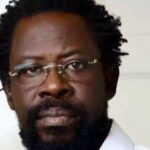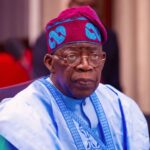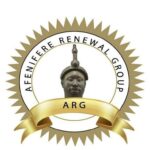Before the emergence of political parties in Nigeria, various socio-cultural groups were established to advocate for reforms. During the military era, several civil groups emerged, agitating for democracy. In the South West, Afenifere, which had existed since 1951, was rejuvenated to promote the interests of the Yoruba ethnic group. Similarly, in the South East, Ohanaeze, originally founded in the 1930s and reformed in 1976, was revived to represent the Igbo. In contrast, northern elites, opting not to emphasise ethnic identity, established the Arewa Consultative Forum (ACF) in 2000. ACF is a regional organisation that represents a broad spectrum of ethnic groups in northern Nigeria. Created to address the leadership vacuum in the region, ACF remains one of Nigeria’s most ethnically inclusive, non-partisan organisations.
ACF has provided leadership in addressing national issues and crises. It was established during a period when Nigeria was not led by a northerner; although President Olusegun Obasanjo had the trust of many in the region. However, as time passed, some northern leaders lost confidence in Obasanjo’s impartiality. This led to an increase in ACF’s prominence as a platform for addressing northern concerns. ACF gained the support of former Northern Heads of State, with General Yakubu Gowon serving as Chairman of the Board of Trustees.
On September 4, 2024, Alhaji Bashir Dalhatu (Wazirin Dutse), a former Nigerian Minister, chaired a Board of Trustees meeting. Attendees included former governors, distinguished senators, former ministers, and other northern leaders. This gathering was a testament to Dalhatu’s leadership skills and ability to unite northern elites. If sustained, his inclusive approach could provide the much-needed leadership to drive northern transformation.
Insecurity remains one of the greatest challenges in northern Nigeria, with bandits controlling parts of Katsina, Zamfara, Sokoto, Kaduna, and Niger States, and Boko Haram ravaging the North East. Kidnapping has become rampant, replacing armed robbery as the major economic crime since the Civil War. Various social and economic factors, including religious extremism and environmental degradation, have contributed to this insecurity. Many believe the failure to address these issues reflects state’s incapacity. The meeting emphasised that northern governors must take decisive action to resolve these challenges.
Poverty in the North is widespread despite its abundant natural resources. However, resources alone do not guarantee development. South Korea and Japan, with limited natural resources, have demonstrated the power of human capital in driving economic growth. The North lacks sufficient human resources to harness its natural wealth. Despite this, strategies like the Strategic Agenda for Northern Development (STAND), led by Dr. Usman Bugaje, provide a roadmap for northern progress.
One issue that has consistently troubled northern leaders is the challenge of Almajirai (Qur’anic school pupils) and out-of-school children. This societal problem has been a barrier to socio-economic development in the region since Sardauna’s first attempt to address it in 1960. The meeting stressed the need for a holistic solution involving parents, state governments, religious leaders, and traditional rulers.
Another recurring issue is the call for restructuring, often championed by southern groups like Afenifere and Ohaneze. These groups have historically used the demand for restructuring as a bargaining tool for political power. During the meeting, Professor Auwalu Yadudu, a constitutional lawyer, clarified that the Nigerian Constitution provides clear procedures for amendments, which do not include a referendum. The North is not opposed to restructuring but insists that it must follow the rules and not the arbitrary demands of separatist groups.
Under the leadership of Alhaji Bashir Dalhatu, ACF is well-positioned for a Northern Rebirth. With its influence, the forum must lead the way in advocating for social change in the region, addressing the insecurity and poverty that threaten the region’s stability. The meeting underscored the importance of communal solidarity and leadership by example, calling on affluent northern leaders to make tangible contributions to the region’s most vulnerable populations.
Ibrahim Ado-Kurawa wrote via: [email protected]

 Join Daily Trust WhatsApp Community For Quick Access To News and Happenings Around You.
Join Daily Trust WhatsApp Community For Quick Access To News and Happenings Around You.


